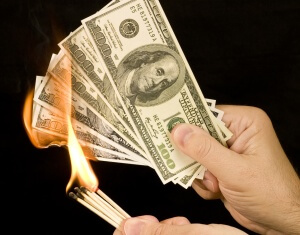This ranting post “Doordash and Pizza Arbitrage” is gone somewhat viral. It describes in detail how many well-known startups are actually subsidizing users to consume their services in a desperate bid to capture market share and create new markets.

The post explains how a restaurant owner got enrolled without his consent on a food delivery application, only to find that the service was on purpose proposing his food products for delivery at a sharp discount compared to the selling prices (without even counting delivery fee) – and of course without his consent. This resulted in some funny experiments where the restaurant owner could order food for a lower price than the startup is paying for it, in reality getting subsidized by the startup!
In general many of the well known brands for new distributed physical services like car transportation (Uber…), food delivery etc, are using their investor’s money to subsidize the service, therefore necessarily skewing the market. This is of course unsustainable. If the vision is to become so market dominant that in the future prices can be imposed like in a monopoly, it is downright unethical. In any case I did not realize how many of the modern convenient physical services of the e-economy are currently in reality not priced as they should be.
In addition as in the case study of the post, poor logistics by the startup meant that the food was delivered cold, impacting the restaurant’s reputation.
“You have insanely large pools of capital creating an incredibly inefficient money-losing business model. It’s used to subsidize an untenable customer expectation. You leverage a broken workforce to minimize your genuine labor expenses. The companies unload their capital cannons on customer acquisition, while this week’s Uber-Grubhub news reminds us, the only viable endgame is a promise of monopoly concentration and increased prices. But is that even viable?“
There will necessarily be a wake-up call sometimes when those entrepreneurs will fail to show that their business model is unsustainable. And it will probably come sooner than expected. Welcome to the universe of unsustainable unicorns!
